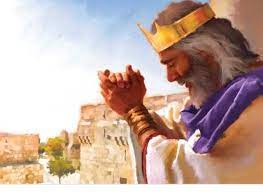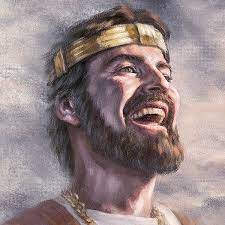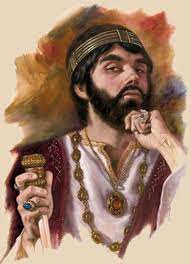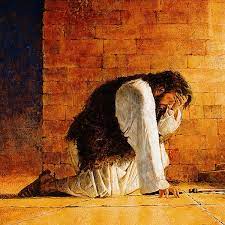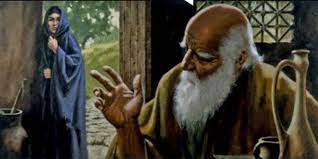Bt – யூதேயாவில் இயேசுவின் ஏற்றுக்கொள்ளல்
யூதேயாவில் இயேசுவின் ஏற்றுக்கொள்ளல்
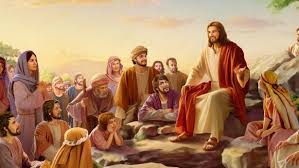 இயேசு செய்த அற்புதங்களினால் யூதேயாவில் பரவலான அங்கீகாரத்தைப் பெற்றார். அவருடைய அற்புதங்களின் நோக்கம், இஸ்ரவேலுக்கு ஒரு அடையாளமாகச் செயல்படுவதாகும், அவருடைய மேசியானிய கூற்றுக்கள் குறித்து முடிவெடுக்க அவளைத் தூண்டுவதாகும். அவர் மெசியாவா இல்லையா? பொதுவாக இஸ்ரவேல் தேசத்தையும், குறிப்பாக யூத மதத் தலைவர்களையும் அந்தக் கேள்வியைத் தவிர்க்க அவர் அனுமதிக்க மாட்டார். யேசுவா செய்த அற்புதங்கள் அவருடைய நபர் மற்றும் அவரது செய்தி இரண்டையும் அங்கீகரிக்கும். முதலாவதாக, அவர் உண்மையில் யூத மேஷியாக் (அவரது நபர்) என்பதையும், அவர் மேசியானிய ராஜ்யத்தை (ஏசாயா 11:1-16; வெளிப்படுத்துதல் 20:1-6) அல்லது யூத தீர்க்கதரிசிகளால் பேசப்பட்ட ராஜ்யத்தை வழங்குகிறார் என்பதையும் அது உறுதிப்படுத்தும். அவரது செய்தி). எனவே, அவர்கள் முதலில் அவரை மேசியானிய ராஜாவாக ஏற்றுக்கொள்ள தயாராக இருந்தால், அவர்கள் தங்கள் நாளில் மேசியானிய ராஜ்யம் நிறுவப்படுவதைக் காண்பார்கள்.
இயேசு செய்த அற்புதங்களினால் யூதேயாவில் பரவலான அங்கீகாரத்தைப் பெற்றார். அவருடைய அற்புதங்களின் நோக்கம், இஸ்ரவேலுக்கு ஒரு அடையாளமாகச் செயல்படுவதாகும், அவருடைய மேசியானிய கூற்றுக்கள் குறித்து முடிவெடுக்க அவளைத் தூண்டுவதாகும். அவர் மெசியாவா இல்லையா? பொதுவாக இஸ்ரவேல் தேசத்தையும், குறிப்பாக யூத மதத் தலைவர்களையும் அந்தக் கேள்வியைத் தவிர்க்க அவர் அனுமதிக்க மாட்டார். யேசுவா செய்த அற்புதங்கள் அவருடைய நபர் மற்றும் அவரது செய்தி இரண்டையும் அங்கீகரிக்கும். முதலாவதாக, அவர் உண்மையில் யூத மேஷியாக் (அவரது நபர்) என்பதையும், அவர் மேசியானிய ராஜ்யத்தை (ஏசாயா 11:1-16; வெளிப்படுத்துதல் 20:1-6) அல்லது யூத தீர்க்கதரிசிகளால் பேசப்பட்ட ராஜ்யத்தை வழங்குகிறார் என்பதையும் அது உறுதிப்படுத்தும். அவரது செய்தி). எனவே, அவர்கள் முதலில் அவரை மேசியானிய ராஜாவாக ஏற்றுக்கொள்ள தயாராக இருந்தால், அவர்கள் தங்கள் நாளில் மேசியானிய ராஜ்யம் நிறுவப்படுவதைக் காண்பார்கள்.



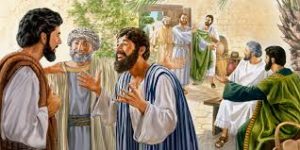 பலர் அவர் செய்யும் அடையாளங்களைக் கண்டு அவருடைய நாமத்தில் விசுவாசம் வைத்தார்கள் (யோவான் 2:23b). அவர்கள் பார்வையால் நடந்தார்கள், விசுவாசத்தினால் அல்ல; அவர்கள் அடையாளங்களை நம்பினார்கள், ஆனால் கர்த்தரை நம்பவில்லை. அவர்கள் அவரை நம்பவில்லை, அவருடைய பெயரில் மட்டுமே. யேசுவா செய்த அற்புதங்கள் அவர்களை உற்சாகப்படுத்தியது, ஆனால் அவர்கள் தங்கள் பாவத்தை ஒப்புக்கொண்டு மனந்திரும்பத் தயாராக இல்லை. நம்பப்படும் வினை aorist காலத்தில் உள்ளதுவேறு வார்த்தைகளில் கூறுவதானால், பலர் மக்கள் முடிவெடுக்கும் நிலைக்கு வந்தனர், ஆனால் யேசுவாவைப் பற்றிய அறிவுசார் அறிவிலிருந்து விசுவாசம் வரையிலான எல்லையை கடக்கவில்லை. ஹீப்ருவின் எழுத்தாளர் இதைப் பற்றி பேசினார் (
பலர் அவர் செய்யும் அடையாளங்களைக் கண்டு அவருடைய நாமத்தில் விசுவாசம் வைத்தார்கள் (யோவான் 2:23b). அவர்கள் பார்வையால் நடந்தார்கள், விசுவாசத்தினால் அல்ல; அவர்கள் அடையாளங்களை நம்பினார்கள், ஆனால் கர்த்தரை நம்பவில்லை. அவர்கள் அவரை நம்பவில்லை, அவருடைய பெயரில் மட்டுமே. யேசுவா செய்த அற்புதங்கள் அவர்களை உற்சாகப்படுத்தியது, ஆனால் அவர்கள் தங்கள் பாவத்தை ஒப்புக்கொண்டு மனந்திரும்பத் தயாராக இல்லை. நம்பப்படும் வினை aorist காலத்தில் உள்ளதுவேறு வார்த்தைகளில் கூறுவதானால், பலர் மக்கள் முடிவெடுக்கும் நிலைக்கு வந்தனர், ஆனால் யேசுவாவைப் பற்றிய அறிவுசார் அறிவிலிருந்து விசுவாசம் வரையிலான எல்லையை கடக்கவில்லை. ஹீப்ருவின் எழுத்தாளர் இதைப் பற்றி பேசினார் (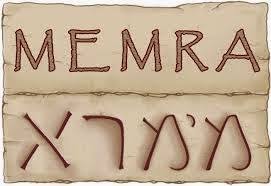 யூத இறையியல் மெம்ராவைக் கையாள்கிறது. இது ஒரு அராமிக் சொல், அதாவது வார்த்தை. எபிரேய மொழியில் தாவர் என்ற சொல். எனவே, லோகோக்கள், மெம்ரா மற்றும் தாவர் அனைத்தும் ஒரே பொருளைக் குறிக்கின்றன. . . அந்த வார்த்தை. கிறிஸ்துவின் காலத்தில், TaNaKh அராமைக் மொழியில் மொழிபெயர்க்கப்பட்டது, இது இயேசுவின் காலத்து யூதர்களின் முக்கிய மொழிகளில் ஒன்றாகும். TaNaKh தாவர் என்ற வார்த்தையைப் பயன்படுத்திய போதெல்லாம், அராமிக் பதிப்பு மெம்ராவைப் பயன்படுத்தியது. இவை டர்குமின் என்று அழைக்கப்பட்டன, அதாவது அராமைக் மொழிபெயர்ப்பு. ஆனால், அவை உண்மையில் மொழிபெயர்ப்புகளைக் காட்டிலும், விளக்கமான மொழிபெயர்ப்புகளாக இருந்தன. உதாரணமாக, எபிரேய உரையில், ஏசாயா 52:13 கூறுகிறது. . . என் வேலைக்காரன் செழிப்பான். எனினும் யூதர்கள் செய்த அராமிக் மொழி பெயர்ப்பு, கூறியது. . . என் வேலைக்காரன் மேசியா செழிப்பான். இதன் விளைவாக, அராமிக் மொழிபெயர்ப்பிலிருந்து யூத இறையியலாளர்கள் மெம்ராவைப் பற்றிய முழு அளவிலான இறையியலை உருவாக்கினர்.18
யூத இறையியல் மெம்ராவைக் கையாள்கிறது. இது ஒரு அராமிக் சொல், அதாவது வார்த்தை. எபிரேய மொழியில் தாவர் என்ற சொல். எனவே, லோகோக்கள், மெம்ரா மற்றும் தாவர் அனைத்தும் ஒரே பொருளைக் குறிக்கின்றன. . . அந்த வார்த்தை. கிறிஸ்துவின் காலத்தில், TaNaKh அராமைக் மொழியில் மொழிபெயர்க்கப்பட்டது, இது இயேசுவின் காலத்து யூதர்களின் முக்கிய மொழிகளில் ஒன்றாகும். TaNaKh தாவர் என்ற வார்த்தையைப் பயன்படுத்திய போதெல்லாம், அராமிக் பதிப்பு மெம்ராவைப் பயன்படுத்தியது. இவை டர்குமின் என்று அழைக்கப்பட்டன, அதாவது அராமைக் மொழிபெயர்ப்பு. ஆனால், அவை உண்மையில் மொழிபெயர்ப்புகளைக் காட்டிலும், விளக்கமான மொழிபெயர்ப்புகளாக இருந்தன. உதாரணமாக, எபிரேய உரையில், ஏசாயா 52:13 கூறுகிறது. . . என் வேலைக்காரன் செழிப்பான். எனினும் யூதர்கள் செய்த அராமிக் மொழி பெயர்ப்பு, கூறியது. . . என் வேலைக்காரன் மேசியா செழிப்பான். இதன் விளைவாக, அராமிக் மொழிபெயர்ப்பிலிருந்து யூத இறையியலாளர்கள் மெம்ராவைப் பற்றிய முழு அளவிலான இறையியலை உருவாக்கினர்.18

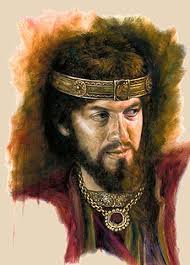
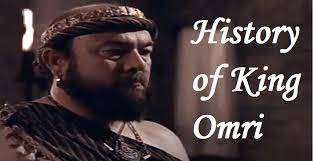
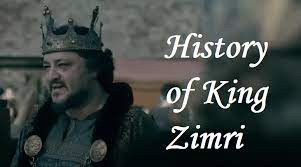
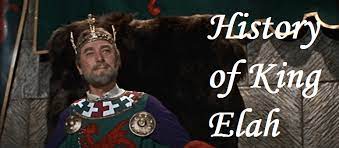
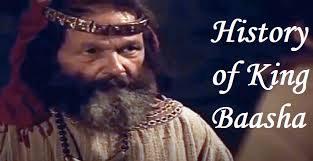
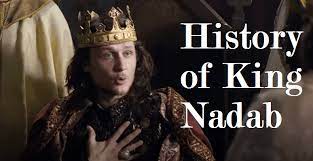
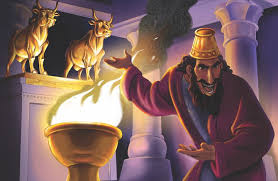
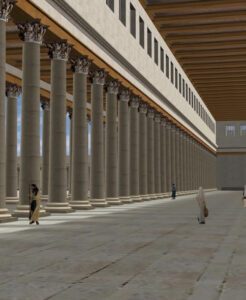
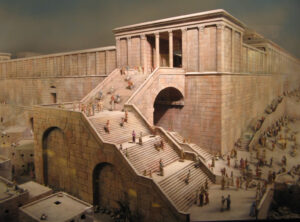 பிற்கால யூத ஆதாரங்களில் இருந்து அங்கு என்ன நடக்கிறது என்பதை நாங்கள் அறிவோம், மேலும் இயேசுவை விட பரிசேயர்கள் அதை விரும்பவில்லை. அந்த நாட்களில் கோவில் மவுண்ட் சதுசேயர்களின் கட்டுப்பாட்டில் இருந்தது மற்றும் பிரதான சதுசேயர்
பிற்கால யூத ஆதாரங்களில் இருந்து அங்கு என்ன நடக்கிறது என்பதை நாங்கள் அறிவோம், மேலும் இயேசுவை விட பரிசேயர்கள் அதை விரும்பவில்லை. அந்த நாட்களில் கோவில் மவுண்ட் சதுசேயர்களின் கட்டுப்பாட்டில் இருந்தது மற்றும் பிரதான சதுசேயர் 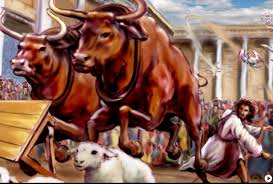 ராயல் ஸ்டோவாவில் உள்ள மகத்தான
ராயல் ஸ்டோவாவில் உள்ள மகத்தான 